Find Help
More Items From Ergsy search
-

Abdominal Aortic Aneurysm (AAA) screening programme
Relevance: 100%
-

AAA (Abdominal aortic aneurysm) screening
Relevance: 93%
-

Survivor of an Abdominal Aortic Aneurysm rupture appeals for men to take up NHS Screening Programme.
Relevance: 93%
-
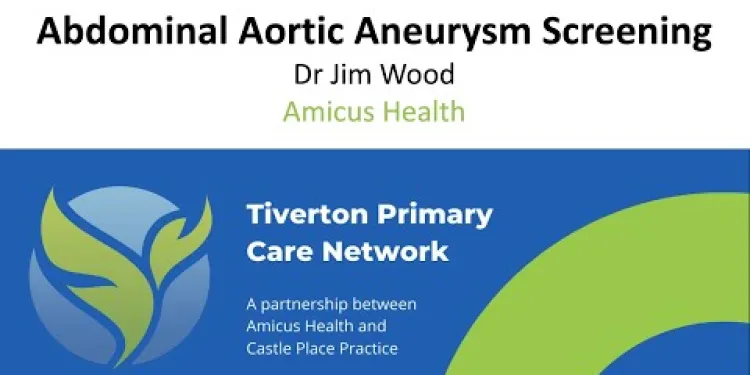
NHS Abdominal Aortic Aneurysm (AAA) Screening
Relevance: 90%
-

Eddie's Story - Abdominal Aortic Aneurysm (AAA) Screening
Relevance: 89%
-
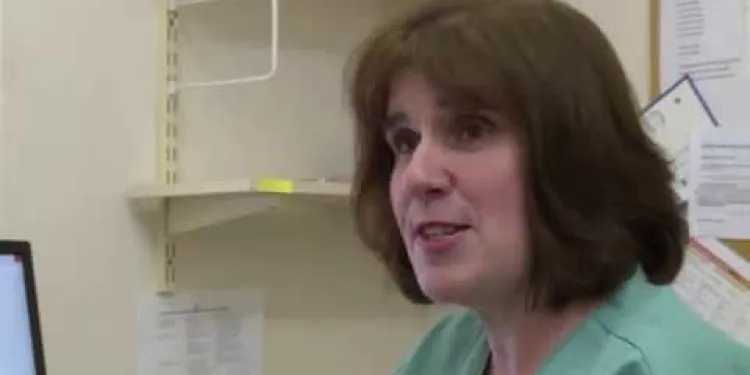
Your abdominal aortic aneurysm (AAA) screening appointment
Relevance: 84%
-
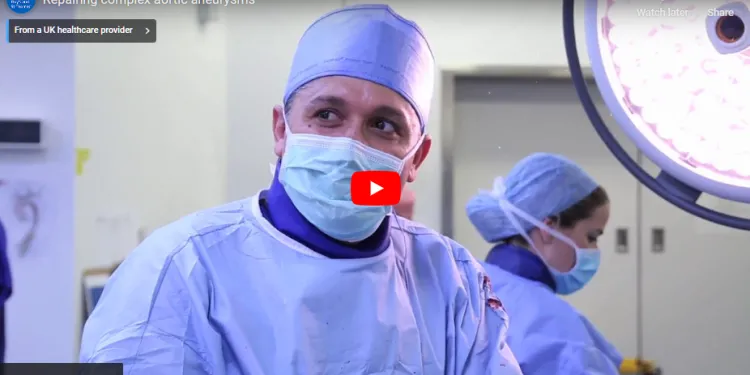
Repairing complex aortic aneurysm
Relevance: 64%
-
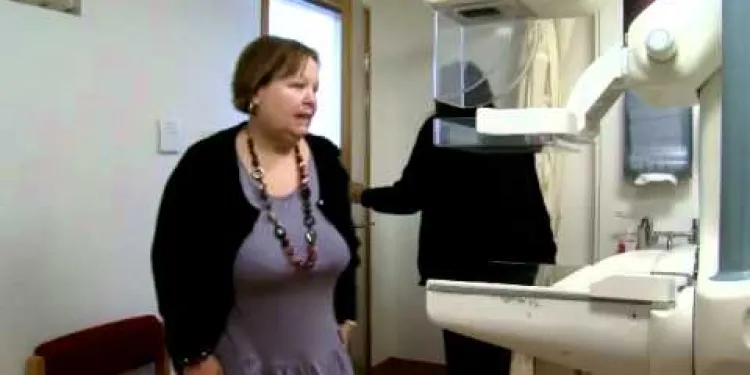
Tower Hamlets breast screening programme
Relevance: 37%
-

North Yorkshire Diabetic Eye Screening Programme - A day in the life
Relevance: 33%
-

Health Screenings You Should Know About
Relevance: 27%
-

NHS breast cancer screening
Relevance: 25%
-
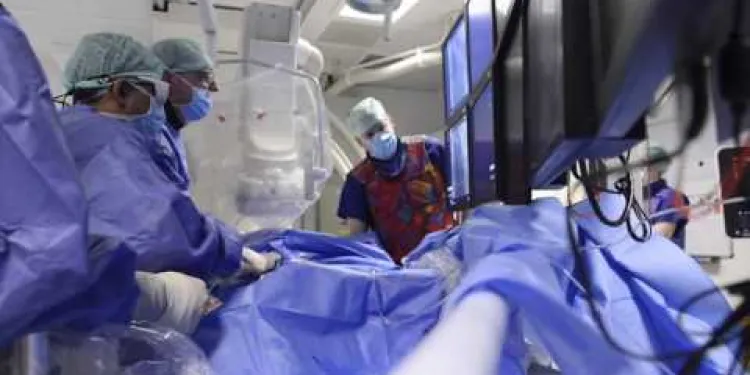
What is it like having a Transcutaneous Aortic Valve Implant (TAVI)?
Relevance: 24%
-
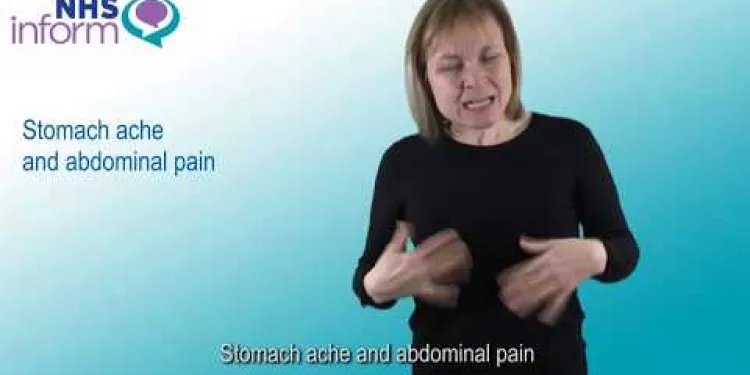
Stomach ache and abdominal pain
Relevance: 24%
-
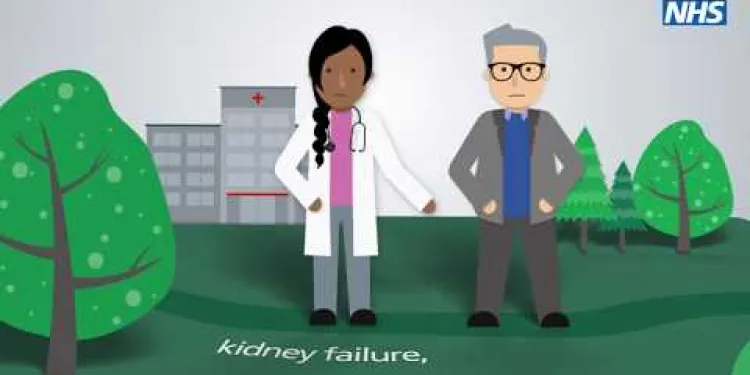
The NHS Diabetes Prevention Programme story
Relevance: 23%
-

Can I do abdominal exercises during pregnancy?
Relevance: 23%
-

Facial exercise programme
Relevance: 23%
-
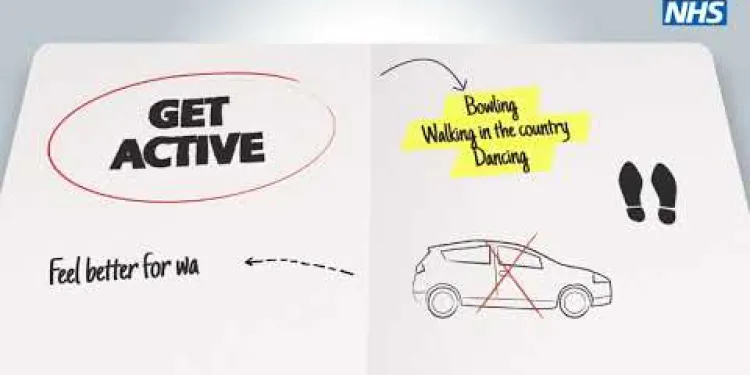
Pam’s story - The NHS Diabetes Prevention Programme
Relevance: 22%
-

Hansa's story - The NHS Diabetes Prevention Programme
Relevance: 22%
-
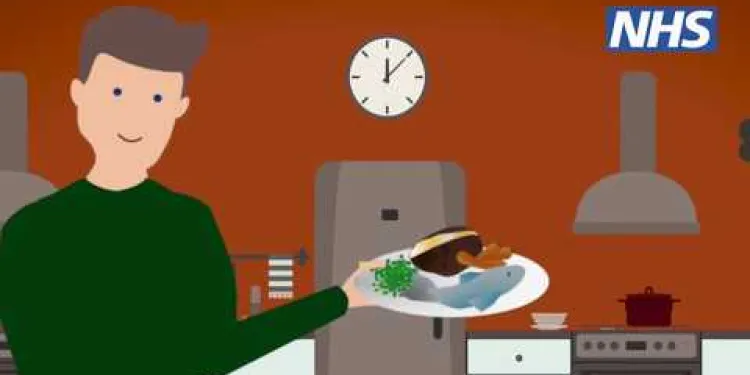
Tom's story (NHS Diabetes Prevention Programme)
Relevance: 22%
-
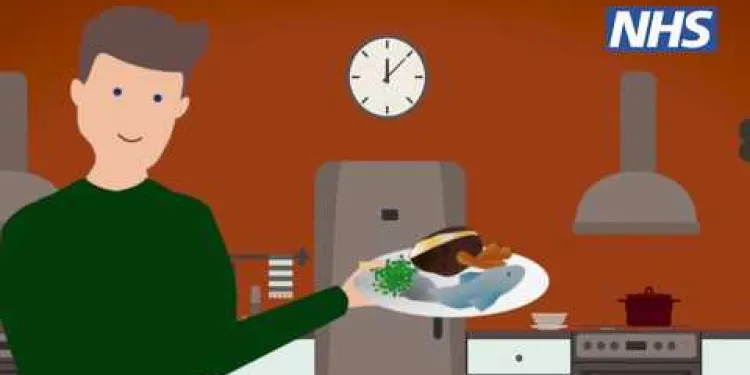
Tom's story (NHS Diabetes Prevention Programme)
Relevance: 22%
-

What is cancer screening?
Relevance: 22%
-
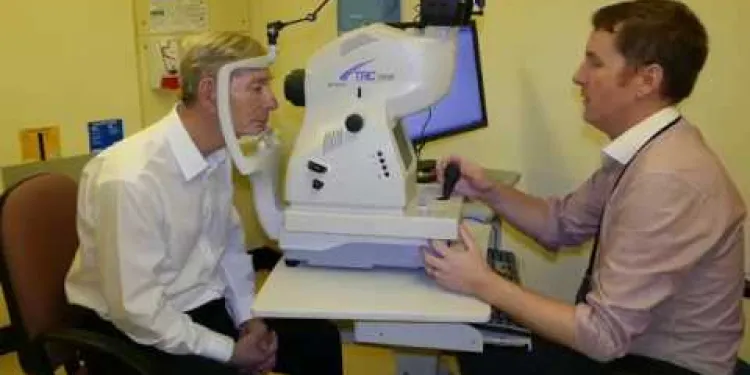
Derbyshire Diabetic Eye Screening - Your Screening Appointment
Relevance: 22%
-

What are the recommendations for colorectal cancer screening?
Relevance: 21%
-
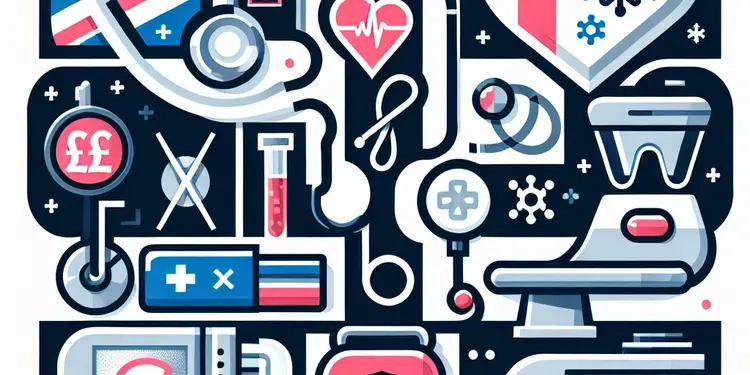
What kinds of cancer screening are available?
Relevance: 20%
-

Diabetes Eye Screening
Relevance: 20%
-
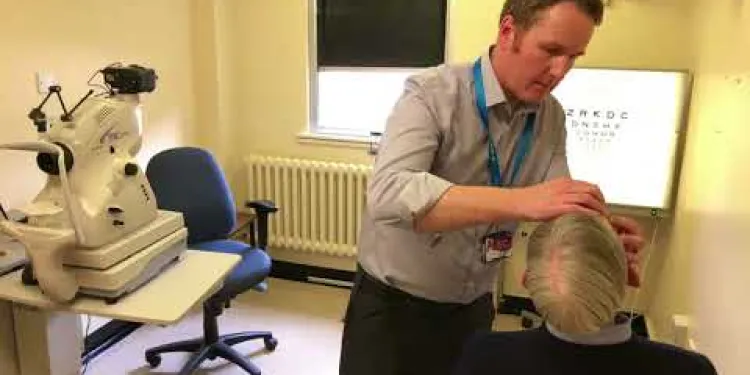
Derbyshire Diabetic Eye Screening - Diabetic Eye Screening
Relevance: 20%
-

AI Breast Cancer Screening in the UK
Relevance: 20%
-

NHSGGC - Cervical Cancer Screening - English
Relevance: 19%
-

Is screening painful or risky for my child?
Relevance: 19%
-

NHS Diabetes Prevention Programme; Preventing Type 2 and improving outcomes for people with diabetes
Relevance: 19%
-
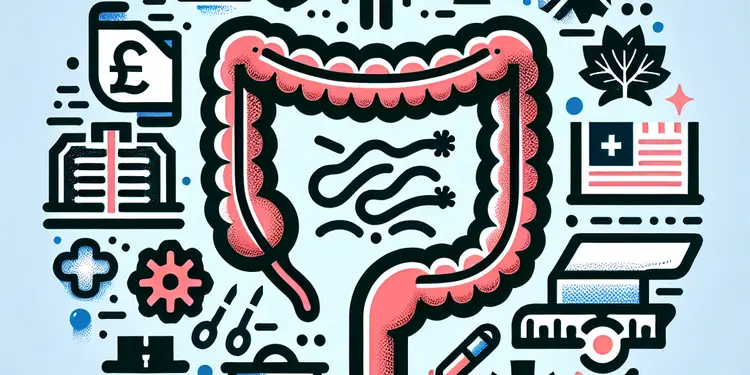
How does increased screening impact bowel cancer statistics?
Relevance: 19%
-

Where can I have my child screened for type 1 diabetes?
Relevance: 19%
-

How often should I get screened for breast cancer?
Relevance: 18%
-
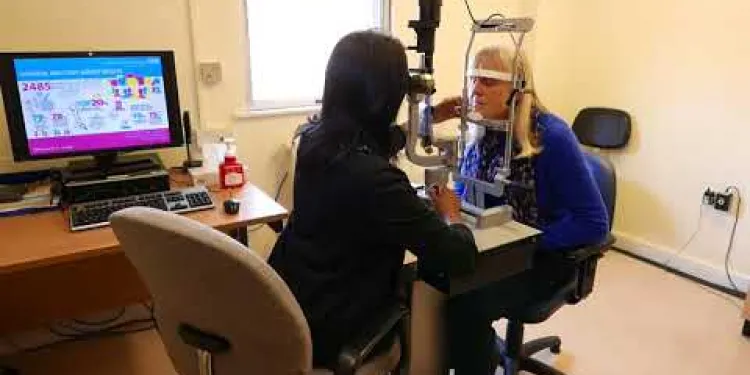
Derbyshire Diabetic Eye Screening - Assessment Clinic Appointment
Relevance: 18%
-

Bowel cancer - Symptoms and signs to look out for
Relevance: 18%
-

When should cervical cancer screening begin?
Relevance: 18%
-

Bowel cancer screening: Alan Titchmarsh and Tommy Walsh | NHS
Relevance: 18%
-

How is appendicitis different from other causes of abdominal pain?
Relevance: 18%
-

What does screening for type 1 diabetes involve?
Relevance: 18%
-
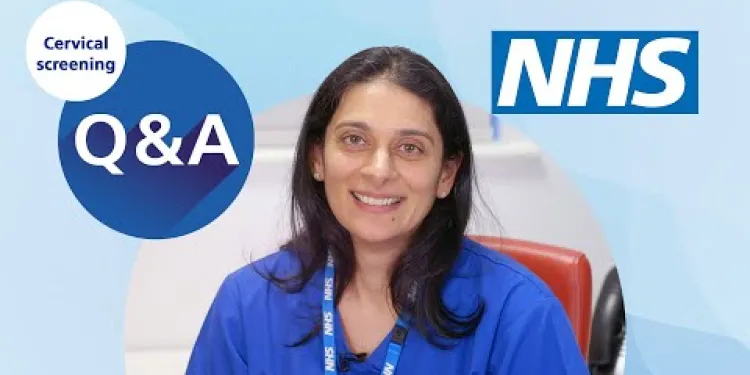
Cervical screening: Q&A | NHS
Relevance: 18%
Abdominal Aortic Aneurysm (AAA) Screening Programme
Introduction to AAA Screening Programme
The Abdominal Aortic Aneurysm (AAA) screening programme in the United Kingdom is a public health initiative aimed at identifying aneurysms in the abdominal aorta before they rupture. An AAA occurs when the wall of the abdominal aorta becomes weak and bulges out like a balloon. If it ruptures, it can lead to life-threatening bleeding. Early detection through screening can significantly reduce the risk of rupture and improve outcomes.Eligibility and Invitations
In the UK, the AAA screening programme primarily targets men aged 65 and older, as men in this age group are at higher risk. Invitations are sent automatically to men in their 65th year, inviting them to attend a screening appointment. Men over 65 can request a scan through their GP if they have not been previously screened. Women are generally at lower risk, and thus not routinely invited, although they can discuss individual risk factors with their GP.Screening Process
The screening process involves a simple, non-invasive ultrasound scan of the abdomen. This scan typically takes about 10-15 minutes and is conducted in a relaxed, outpatient setting. During the scan, a gel is applied to the abdomen and a hand-held device called a transducer is used to measure the size of the aorta. Results are usually available immediately.Interpreting the Results
Results of the AAA screening are shared immediately after the scan. There are three possible outcomes: 1. **Normal Aorta:** No aneurysm present, with recall for screening not needed unless symptoms arise. 2. **Small or Medium Aneurysms:** Regular surveillance appointments will be scheduled to monitor the aneurysm. 3. **Large Aneurysms:** Further tests and consultations with a vascular specialist to discuss potential treatments, which may involve surgery.Benefits and Importance
The AAA screening programme has a significant impact on reducing mortality from aortic ruptures. Early detection allows for careful monitoring and timely intervention which can prevent rupture. This programme has been shown to reduce the risk of AAA-related death by up to 50% among those screened. By detecting AAA in the early stages, complications and emergency surgeries can often be avoided.Conclusion
The Abdominal Aortic Aneurysm Screening Programme in the UK is a crucial public health strategy aimed at safeguarding the well-being of older men. Through simple and effective ultrasound screening, the programme helps detect potentially life-threatening aneurysms early, ensuring timely management and reducing the risk of rupture. It is an essential preventive measure that significantly contributes to the reduction of mortality and morbidity associated with AAA.Abdominal Aortic Aneurysm (AAA) Screening Programme
What is AAA Screening?
AAA screening in the UK helps find problems in the big blood tube in your tummy. This tube is called the abdominal aorta. If it gets weak and puffs up, it can burst and cause very serious bleeding. Screening finds the problem early so doctors can help before it bursts.Who Can Get Tested?
In the UK, men who are 65 years old can get a letter to come for a test. Older men can ask their doctor for a test if they didn't have one before. Women do not usually need the test because it is not common for them, but they can talk to a doctor if they are worried.How is the Test Done?
The test is easy and it does not hurt. It is an ultrasound scan, like taking a picture of your tummy. It takes 10-15 minutes. You lie down, and gel is put on your tummy. A doctor or nurse uses a small machine to see the size of the aorta. You get the results right away.What Do the Results Mean?
There are three types of results: 1. **Normal:** Everything looks ok. No test is needed unless you feel unwell later. 2. **Small or Medium Problem:** The aorta is a bit bigger but not dangerous yet. You will have regular check-ups. 3. **Large Problem:** More tests and a talk with a doctor. Surgery might be needed.Why is it Important?
The test helps save lives by finding the problem early. Finding the problem can stop it from bursting. This lowers the chance of serious bleeding and helps people live longer. Screening is important because it can make a big difference, stopping up to 50% of related deaths.In Summary
The AAA Screening Programme in the UK is very important. It checks for big problems in the blood tube in the tummy. The test is quick and helps keep people safe. Screening finds serious problems early, so they can be treated in time. This helps save lives and stop emergencies.Frequently Asked Questions
What is an Abdominal Aortic Aneurysm (AAA)?
An Abdominal Aortic Aneurysm (AAA) is a swelling of the aorta, the main blood vessel that runs from the heart down through the chest and abdomen. If not monitored, it can expand and potentially rupture, leading to serious health complications.
Why is AAA screening important?
Screening for AAA is important because the condition typically does not have symptoms until it is severe. Early detection through screening can help prevent rupture by allowing for monitoring and timely treatment.
Who is eligible for AAA screening in the UK?
In the UK, AAA screening is offered to men aged 65 and over. Men who are registered with a GP in the UK will receive an invitation for screening when they turn 65.
How is the AAA screening test performed?
The screening test for AAA is a simple, painless ultrasound scan that takes about 10-15 minutes. It involves lying down while a small scanner is moved over the abdomen to check the size of the aorta.
What do the results of an AAA screening mean?
The results will indicate if an AAA is present and, if so, how large it is. Small AAAs require regular monitoring, while larger AAAs may need further tests and possibly surgery.
Is AAA screening safe?
Yes, AAA screening is a safe, non-invasive procedure that uses ultrasound technology without any exposure to radiation.
What happens if an AAA is found during screening?
If an AAA is found, the frequency of follow-up monitoring will depend on its size. Large AAAs may require referral to a specialist for further assessment and potential treatment.
What are the risk factors for AAA?
Risk factors include age (most common in men over 65), smoking, high blood pressure, a family history of AAA, and certain genetic factors.
What are the symptoms of an AAA?
AAAs typically do not have symptoms until they are large or rupture. Symptoms of a ruptured AAA can include sudden severe pain in the abdomen or back, feeling faint, or collapsing. This is a medical emergency.
Can AAA be treated?
Yes, treatment options range from regular monitoring for small AAAs to surgical intervention for larger AAAs to prevent rupture.
What should I do if I am not invited for screening and I am over 65?
If you are over 65 and have not been invited for AAA screening, you can request a screening by contacting your local AAA screening service.
Do women need to be screened for AAA?
Screening is not routinely offered to women because AAAs are much less common in women. However, women at high risk may discuss screening with their GP.
How can I reduce my risk of developing an AAA?
You can reduce your risk by not smoking, maintaining a healthy blood pressure, eating a balanced diet, and getting regular exercise.
Do you need to prepare for the AAA screening test?
No special preparation is needed for the AAA screening test. It is advisable to wear loose-fitting clothing to make it easier for the ultrasound technician to access your abdomen.
Can I decline the invitation for AAA screening?
Yes, participation in AAA screening is entirely voluntary. If you choose not to attend, you can inform your local screening service or simply ignore the invitation.
What is an Abdominal Aortic Aneurysm (AAA)?
An Abdominal Aortic Aneurysm, or AAA, is a big bump in a blood tube inside your tummy. This blood tube is called the aorta. It sends blood from the heart to the rest of the body. When the bump gets too big, it can be dangerous. Doctors can help find and fix it.
Here are some tips to help understand AAA:
- Look at pictures or videos about AAA. This can make it easier to see what it is.
- Ask a doctor to explain it in simple words.
- Use a ruler to see how big the aorta is normally and how big it can get with an AAA.
An Abdominal Aortic Aneurysm (AAA) is when a big blood tube called the aorta gets a bump in it. This tube goes from the heart, through the chest, and down to the tummy. If the bump gets too big, it can burst, and that can make you very sick.
Why do we check for AAA?
Checking for AAA is important because it helps us find problems early. AAA stands for "Abdominal Aortic Aneurysm". It is like a bulge in a big blood vessel in your belly.
If we find it early, doctors can help fix it before it gets too big and causes trouble.
It is good to get checked, especially when you are older. Ask your doctor if you need a check-up for AAA.
You can ask someone you trust to go with you to the doctor. They can help you listen and understand.
Checking for AAA is important. This is because you usually don't know you have it until it gets really bad. Finding it early can stop it from bursting. Doctors can watch it and fix it in time.
Who can have an AAA screening in the UK?
AAA screening checks for a big swelling in a blood vessel in your tummy called an abdominal aortic aneurysm. This check helps to keep you safe.
If you are a man and 65 years old or older, you can have this check. The NHS will invite you for screening.
Women, and men younger than 65, usually do not need this test unless a doctor thinks it's needed.
Tools to help: You can use a calendar to remember appointments. Ask someone to go with you if you are feeling nervous.
In the UK, men who are 65 years old or older can have a special health check called AAA screening. If you are a man and you see a doctor in the UK, you will get a letter asking you to come for this health check when you turn 65.
How Do They Do the AAA Screening Test?
The test to check for AAA is easy and does not hurt. It is a special picture scan called an ultrasound. The test takes about 10 to 15 minutes. You just lie down while a small scanner is moved over your belly. This checks the size of the aorta, which is a big blood tube inside your body.
What do the results of an AAA test mean?
AAA tests look at your tummy to check for any bulges in a big blood pipe. If the test finds a bulge, the doctor will tell you what to do next.
If the test is normal, it means everything is okay. You might not need another test for a long time.
It’s good to talk with a doctor or nurse if you have any questions. They can use pictures or simple words to help you understand.
The test will show if there is an AAA. It will also show how big it is. If the AAA is small, doctors will check it often. If the AAA is big, more tests or surgery might be needed.
Is AAA Screening Safe?
AAA screening is a health test. It checks if you have a big blood vessel near your belly that might be too big.
The test is very safe. Doctors do it to keep you healthy.
If you find reading hard, you can ask someone to help you understand. Using pictures or talking about it can make it easier.
Yes, an AAA test is safe. It doesn't hurt and uses sound waves instead of radiation.
What happens if doctors find an AAA during a check-up?
AAA stands for Abdominal Aortic Aneurysm. This means there is a swelling in a big blood tube in your tummy.
If doctors find an AAA, they will help you. Here is what might happen:
- Doctors will check the AAA to make sure you are safe.
- They might want to see you again soon for another check-up.
- Sometimes, doctors might say you need an operation to fix the AAA.
It is important to go to the doctor and follow their advice. They want to help keep you healthy.
If you need help reading this, you can ask a friend or family member.
If doctors find an AAA, how often they check it depends on how big it is. Big AAAs might need to be looked at by a specialist doctor to see if they need treatment.
What makes it more likely to get AAA?
AAA stands for Abdominal Aortic Aneurysm. It's a big word, but it means a swelling in a blood vessel in your tummy.
Here are some things that make it more likely to happen:
- Getting older: People over 65 are more at risk.
- Being male: Men are more likely to get AAA.
- Smoking: Smoking can hurt your blood vessels.
- Having heart problems: If your heart is not healthy, it can affect your blood vessels too.
- Family history: If your family has had AAA, you might get it too.
If you're worried about AAA, ask a doctor for help. They can check and tell you more.
Using picture books or talking about it with someone you trust can also help you understand better.
Some things can make it more likely for someone to get AAA. These things include:
- Getting older (it happens more in men older than 65)
- Smoking cigarettes
- Having high blood pressure
- Having family members who have had AAA
- Certain things in your DNA (the special code that makes you who you are)
Helpful Tips: You can use apps or audiobooks that read text out loud to help you understand the information better. Also, talking about this with someone you trust, like a family member or a doctor, can be helpful.
What are the signs of an AAA?
An AAA is a big bump in a blood tube in your tummy. Here are some signs to watch out for:
- A strong pain in your tummy or back
- A pulsing feeling like a heartbeat in your tummy
- Feeling very dizzy or fainting
If you notice these signs, tell an adult and go see a doctor. You can use pictures or ask someone to help you understand.
AAAs are big blood pipes in the tummy area. You usually don't feel anything when they are small. But if they get big or break, you might feel a sudden, strong pain in your tummy or back. You could also feel dizzy or fall down. This is very serious, and you need to see a doctor right away.
Can doctors help with AAA?
Yes, there are different ways to help. For small AAAs, doctors will keep an eye on them. For bigger AAAs, surgery might be needed to stop them from breaking.
What if I am over 65 and don't get a screening invite?
If you are over 65 and do not get a letter for screening, do not worry. Here is what you can do:
1. Call your doctor. They can help you get a screening test.
2. Ask a family member or friend for help if you feel unsure.
3. Use a calendar or set an alarm to remind you to call the doctor.
Screenings are important to keep you healthy!
If you are over 65 and have not been invited for an AAA check-up, you can ask for one. Just call your local AAA check-up service.
Tip: You can use a calendar to remind you of important health check-ups.
Should women get checked for AAA?
AAA stands for Abdominal Aortic Aneurysm. It is a swelling in a big blood vessel in the belly. Getting it checked is called screening.
Here's what to know:
- An AAA can be dangerous if it bursts.
- Screening helps doctors find AAAs early, before they cause problems.
- Talk to your doctor about getting screened if worried.
Things that might help:
- Ask someone to go with you to the doctor to help remember what is said.
- Watch videos or look at pictures to understand AAAs better.
- Use simple apps or tools to track health checks.
Screening is not usually given to women because AAAs (a type of swelling in a blood vessel) are rare in women. But women with high risk can talk to their doctor about it.
How can I lower my chance of getting an AAA?
Here are some tips to help you:
- Eat healthy food like fruits and vegetables.
- Exercise regularly, like walking or playing sports.
- Don't smoke or try to quit if you do.
- Visit the doctor for check-ups.
- Ask your family if anyone had AAA.
- Use tools like picture charts to help remember these tips.
You can stay healthy by not smoking, keeping your blood pressure normal, eating a mix of different foods, and exercising often.
Do you need to get ready for the AAA screening test?
The AAA screening test checks the part of your body called the aorta. It helps doctors see if it is healthy.
You do not need to do much to get ready for this test.
Here are a few tips to help you:
- You might want to wear comfortable clothes.
- Ask someone to come with you if you feel nervous.
- It’s okay to ask questions if you do not understand something.
You can also use tools like videos or pictures to understand better. Talk to your caregiver if you need more help.
You do not need to do anything special to get ready for the AAA test. It is a good idea to wear clothes that are easy to take off or pull up, so the doctor can easily look at your tummy with the ultrasound machine.
Can I say no to the AAA test invitation?
You can say no to the test if you want. It's okay to decide what's best for you.
Here are some things that can help you decide:
- Talk to your doctor. They can give you more information.
- Ask a friend or family member to help you understand.
Yes, you choose if you want to go to the AAA screening. It is up to you. If you do not want to go, you can tell the screening people near you, or you can just not go when they invite you.
Useful Links
This website offers general information and is not a substitute for professional advice.
Always seek guidance from qualified professionals.
If you have any medical concerns or need urgent help, contact a healthcare professional or emergency services immediately.
Some of this content was generated with AI assistance. We’ve done our best to keep it accurate, helpful, and human-friendly.
- Ergsy carfully checks the information in the videos we provide here.
- Videos shown by Youtube after a video has completed, have NOT been reviewed by ERGSY.
- To view, click the arrow in centre of video.
- Most of the videos you find here will have subtitles and/or closed captions available.
- You may need to turn these on, and choose your preferred language.
- Go to the video you'd like to watch.
- If closed captions (CC) are available, settings will be visible on the bottom right of the video player.
- To turn on Captions, click settings .
- To turn off Captions, click settings again.
More Items From Ergsy search
-

Abdominal Aortic Aneurysm (AAA) screening programme
Relevance: 100%
-

AAA (Abdominal aortic aneurysm) screening
Relevance: 93%
-

Survivor of an Abdominal Aortic Aneurysm rupture appeals for men to take up NHS Screening Programme.
Relevance: 93%
-

NHS Abdominal Aortic Aneurysm (AAA) Screening
Relevance: 90%
-

Eddie's Story - Abdominal Aortic Aneurysm (AAA) Screening
Relevance: 89%
-

Your abdominal aortic aneurysm (AAA) screening appointment
Relevance: 84%
-

Repairing complex aortic aneurysm
Relevance: 64%
-

Tower Hamlets breast screening programme
Relevance: 37%
-

North Yorkshire Diabetic Eye Screening Programme - A day in the life
Relevance: 33%
-

Health Screenings You Should Know About
Relevance: 27%
-

NHS breast cancer screening
Relevance: 25%
-

What is it like having a Transcutaneous Aortic Valve Implant (TAVI)?
Relevance: 24%
-

Stomach ache and abdominal pain
Relevance: 24%
-

The NHS Diabetes Prevention Programme story
Relevance: 23%
-

Can I do abdominal exercises during pregnancy?
Relevance: 23%
-

Facial exercise programme
Relevance: 23%
-

Pam’s story - The NHS Diabetes Prevention Programme
Relevance: 22%
-

Hansa's story - The NHS Diabetes Prevention Programme
Relevance: 22%
-

Tom's story (NHS Diabetes Prevention Programme)
Relevance: 22%
-

Tom's story (NHS Diabetes Prevention Programme)
Relevance: 22%
-

What is cancer screening?
Relevance: 22%
-

Derbyshire Diabetic Eye Screening - Your Screening Appointment
Relevance: 22%
-

What are the recommendations for colorectal cancer screening?
Relevance: 21%
-

What kinds of cancer screening are available?
Relevance: 20%
-

Diabetes Eye Screening
Relevance: 20%
-

Derbyshire Diabetic Eye Screening - Diabetic Eye Screening
Relevance: 20%
-

AI Breast Cancer Screening in the UK
Relevance: 20%
-

NHSGGC - Cervical Cancer Screening - English
Relevance: 19%
-

Is screening painful or risky for my child?
Relevance: 19%
-

NHS Diabetes Prevention Programme; Preventing Type 2 and improving outcomes for people with diabetes
Relevance: 19%
-

How does increased screening impact bowel cancer statistics?
Relevance: 19%
-

Where can I have my child screened for type 1 diabetes?
Relevance: 19%
-

How often should I get screened for breast cancer?
Relevance: 18%
-

Derbyshire Diabetic Eye Screening - Assessment Clinic Appointment
Relevance: 18%
-

Bowel cancer - Symptoms and signs to look out for
Relevance: 18%
-

When should cervical cancer screening begin?
Relevance: 18%
-

Bowel cancer screening: Alan Titchmarsh and Tommy Walsh | NHS
Relevance: 18%
-

How is appendicitis different from other causes of abdominal pain?
Relevance: 18%
-

What does screening for type 1 diabetes involve?
Relevance: 18%
-

Cervical screening: Q&A | NHS
Relevance: 18%


